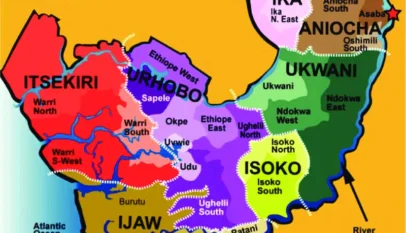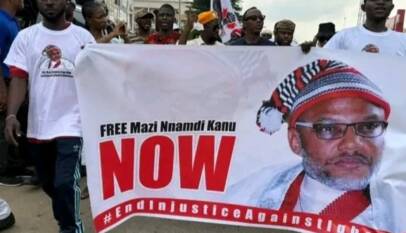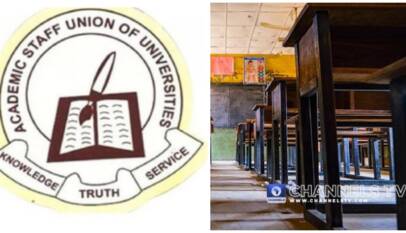By Ishemienor Uwagor, Benin City
Tensions are mounting once again between the Ijaw and Itsekiri ethnic groups in Delta State following a controversial ward delineation exercise by the Independent National Electoral Commission (INEC) and alleged incursions by operatives of Tantita Security Services Nigeria Limited into Itsekiri communities.
The Ijaw and Itsekiri are the dominant ethnic groups in Warri North, Warri South-West, and Warri South Local Government Areas, with administrative headquarters in Koko, Ogbe-Ijaw, and Warri metropolis, respectively. These communities have a long, volatile history of disputes, particularly over land ownership and control of oil-rich territories.
The latest developments have sparked fears of a return to violence reminiscent of the bloody Warri crisis that raged from the mid-1990s to as recently as 2024. That conflict, which spanned nearly three decades, resulted in hundreds of deaths and the destruction of property valued in billions of naira.
The current wave of unrest was triggered by INEC’s recent ward delineation exercise, which is widely perceived as favoring the Ijaw in their push for greater political influence in the Warri LGAs. It comes alongside accusations of repeated intrusions into Itsekiri communities by heavily armed operatives of Tantita Security Services, a private security outfit owned by ex-militant leader and former Warri warlord, Chief Government Ekpemupolo (popularly known as Tompolo).
In a video widely circulated online, prominent Itsekiri leader and former Delta State lawmaker, Mr. Michael Diden, popularly known as Ejele, openly called on his people to resist future invasions by Tantita operatives. “If they enter your communities again, misbehave with them,” Ejele said, a remark that has been interpreted by many as a call to arms.
Ejele’s comments came in response to mounting frustrations within the Itsekiri community over what they describe as Tantita’s aggressive and unauthorized patrols. Though the firm was contracted by the federal government to safeguard oil pipelines and curb crude oil theft, Itsekiri leaders argue that Tantita’s methods have increasingly become provocative and territorially biased.
The situation is further complicated by recent court rulings that have awarded ownership of key oil-bearing communities—such as Benikrukru and others—to the Ijaw, decisions that the Itsekiri community sees as both a legal and symbolic loss in the protracted battle over Warri lands.
Political observers believe the INEC delineation, coupled with the judicial victories for the Ijaw and the assertive presence of Tantita operatives, is creating a dangerous mix of resentment, fear, and renewed ethnic nationalism.
Security analysts, who requested anonymity due to the sensitivity of the issue, warned that the current escalation bears the hallmarks of the previous Warri conflicts—but with deadlier potential.
“Unlike the 1990s, both sides now have access to more advanced weaponry,” one expert noted. “Some groups are reportedly better armed than ever and may even be able to challenge state security forces. A new round of fighting would be devastating—not just to Delta State, but to Nigeria’s oil-dependent economy.”
Oil multinationals operating in the region have already expressed concerns over the renewed hostilities, with some quietly reviewing contingency plans in the event of conflict. The Niger Delta region remains a critical hub for Nigeria’s crude oil production, and any disruption in the Warri axis could ripple across global energy markets.
Calls for urgent dialogue and federal intervention are growing. Community leaders, civil society organizations, and policy advocates are urging the federal government to immediately mediate the tensions, review the implementation of the INEC delineation exercise, and investigate the operations of all security outfits operating in the area.
With memories of the last Warri crisis still fresh, stakeholders say there is a narrow window to prevent history from repeating itself. But that window, many fear, is closing rapidly.




































